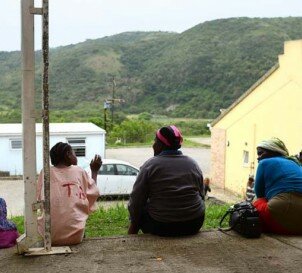
Helping to plan for, find and keep the workforce needed to deliver health for all.
AHP is a social profit organisation that works with the South African government and civil society organisations to find solutions to Human Resources for Health challenges.
News
Professional development of young doctors crucial for rural health

Professional development of community service officers should be prioritised if South Africa hopes to attract more doctors to rural and underserved areas and improve access to quality healthcare for all.
A study among medical and dental community service officers shows that they are more willing to work in rural communities if they experienced professional development. In fact, the study found that “reporting significant levels of professional development doubled the odds that participants planned to work in rural or underserved communities”.
Researchers said that “capitalising on professional development during the community service year could have a significant impact on practitioners who are retained in rural or underserved areas in the future”.
The study, completed under the directive of Africa Health Placements (AHP) and the Foundation for Professional Development in collaboration with the Department of Health and the Health Professions Council of South Africa, further shows that more community service officers would prefer working in the public sector than in the private sector or overseas after they’ve completed their year of service.
The majority planned to work in South Africa in the year following community service with 69% of participants indicating that they planned to work in the public sector. Only 23% wanted to work in the private sector and 6% intended to work overseas after finishing their community service year. A quarter wanted to work in rural or underserved areas.
A total of 685 medical and dental community service officers completed the survey, giving feedback on factors such as orientation, clinical advising, ongoing mentorship, accessibility of clinical leadership, and handling of community service officers’ concerns. Those who participated in the survey completed their community service year in 2009. More than half (55%) were placed in rural healthcare facilities.
Community service officers are required to compete a year in a public health facility. According to the Department of Health the main objective of the community service programme is “to ensure improved provision of health services to all the citizens of our country”. The programme started with doctors, dentists and pharmacists in 1998 and, in 2003, grew to include physiotherapists, occupational and speech therapists, clinical psychologists, dieticians, radiographers and environmental health practitioners. A programme for nurses was implemented thereafter.
South Africa is one of 70 countries globally that implement a compulsory community service year to help address the severe staff shortages in the public healthcare sector and create a more equitable healthcare system. While nearly half (approximately 43.7%) of the population lives in rural areas in South Africa, rural communities have access to only 12% of the country’s doctors. The majority of South African doctors (70%) work in the private sector, leaving less than 11 000 doctors to serve the 85% of South Africans who do not have private health insurance.
According to the study, participants “reported high levels of satisfaction with community service training and mentorship”. Most community service officers felt well-orientated (87%) with 82% indicating that seniors were available when needed. Almost three quarters felt they had good clinical supervision (71%) as well as satisfactory mentorship and support (72%). The overwhelming majority (95%) of participants felt they had made a difference in the community they served with 87% reporting professional development.
The study found that “receiving a rural placement during the community service year improved the odds of a community service officer considering future rural or underserved community work whether or not that was their first choice of placement”.
This suggests “community service allocation processes in each province should consider placements more strategically in terms of exposing new professionals to rural facilities even if this was not the top choice of placements. In other words, community service officers who remain in their ‘comfort zone’ (as indicated by being assigned to their first choice facility) possibly fail to consider other options for future work.
“Utilising the community service year as an opportunity to expose health professionals to rural or underserved community work, while supporting them in professional development, should be a priority for future community service programming.”
AHP supports the need for professional development for health workers at rural and underserved facilities. AHP runs a Retention Programme, which is aligned with the Department of Health’s policies, to address some of the underlying causes of the high attrition rates in rural healthcare. Ultimately the programme aims to create a more sustainable workforce in rural South Africa. Retention Officers work on the ground in nine rural districts (out of 52 across the country) and one sub-district.
Retention Officers support several cadres of healthcare workers, including doctors, community service officers and clinical associates. They work to address issues that affect attrition, including personal and professional isolation, accommodation, HR processes, and relationships between healthcare workers and hospital management. AHP's retention team assists in organising continued professional development (CPD) sessions. CPD sessions are held to improve the knowledge and skills of healthcare workers, reduce the feeling of professional isolation, and create a forum where they can network and interact. These sessions cover a range of topics relevant to healthcare workers working in rural areas.
Read the complete study:
- Placement, support, and retention of health professionals: national, cross-sectional findings from medical and dental community service officers in South Africa (pdf)

